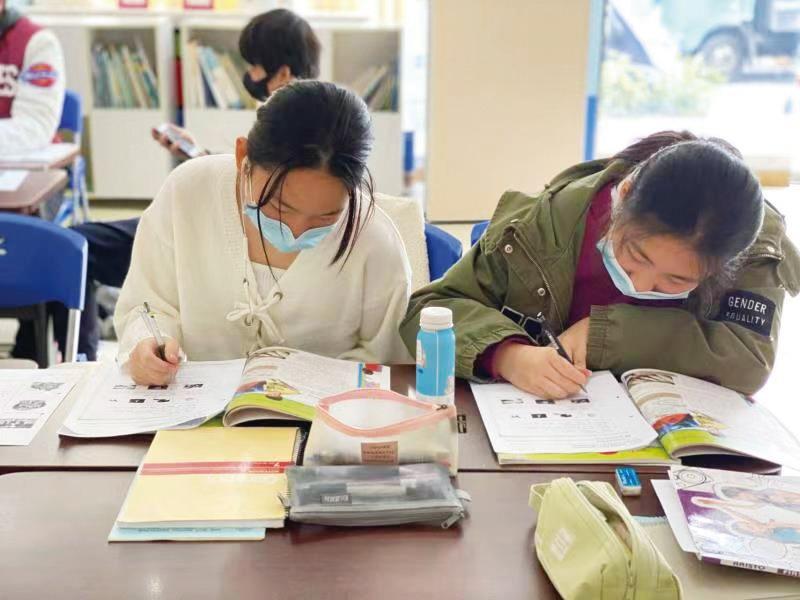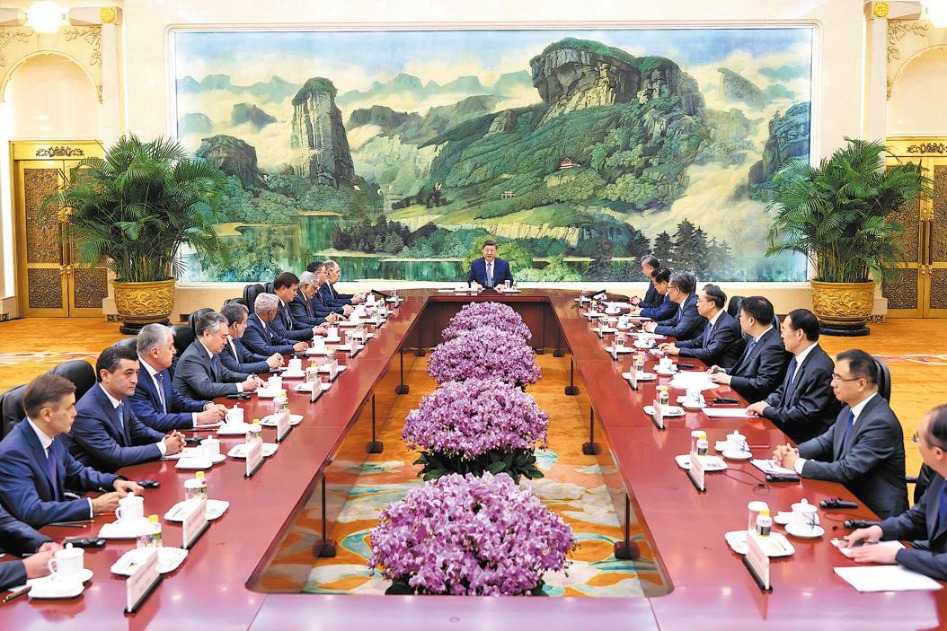Studying so far and yet so near


Since the new school year began in September, the students have been unable to attend classes in Hong Kong for almost half a year. A growing number of public and private organizations in Hong Kong and Shenzhen have risen to the occasion, joining forces to create a better educational environment for them.
By delivering textbooks across the border, synchronically organizing examinations in Shenzhen and Hong Kong, and jointly designing face-to-face classes for the stranded students in Shenzhen, they've found a new collaboration mode to replace what the students have lost.
"All we've done is telling the students they've not been forgotten," said Iris Liu Kam-fung, director of a cross-border casework program at the ISS Hong Kong branch.
She said many cross-border students in Shenzhen have gradually lost the feeling of being a student as their Hong Kong classmates have had face-to-face classes intermittently and their mainland peers get back to normal. In one case, a student had to confine himself at home for a long time, fearing his mainland peers might suspect he's unable to attend school as they do.
Although about 2,500 Primary Three to Five students resumed classes in Hong Kong briefly in June and July, most of the 27,000 cross-border students have never returned to their campuses throughout last year. Although the mass public COVID-19 vaccinations kicked off in Hong Kong in late February, it's still anybody's guess when normal cross-border travel can resume.
Equal opportunities
To offer equal educational opportunities to the Shenzhen students, the ISS arranged for them to take secondary school entrance examinations. Without its help, schools might have had to cancel the tests for both cross-border and Hong Kong students, and rely on their daily performance in school or past grades for assessment.
Most of the examinations were conducted simultaneously with those in Hong Kong. Printed exam papers were delivered to Shenzhen in advance, and the scanned versions were sent back to the special administrative region after the tests. During the exams, Hong Kong teachers joined Shenzhen employees at the examination centers and helped monitor the students remotely and offer guidance.
Ni Yijie, an ISS member of its Luohu center in Shenzhen, said their workload has been stretched to the limit amid the pandemic. She and her colleagues used to conduct all-day exams, covering nine subjects, for more than 80 secondary students from various grades.
The examinations could also help students to gradually get used to homeschooling and offer them a chance to meet up with friends. "They're nervous but happy," Ni said.
Untoward situations do crop up from time to time. A Secondary One student once left his identity card at home, and even Hong Kong teachers couldn't verify his identity as he had never been to the school physically since the pandemic broke. However, he was finally allowed to take the test.
To cope with the demand, more social service groups have joined in providing such services for students, while some private educational institutions offer paid services. Given the limited resources of public organizations, private institutions have been playing a key role in catering to the needs of cross-border students.
Sheung Shui Pui Yau Kindergarten, just a stone's throw from the Lok Ma Chau checkpoint, has teamed up with private educational centers in Shenzhen since September to conduct face-to-face classes for about 30 students in Shenzhen. When their Hong Kong peers had to return to homeschooling due to the fourth wave of the pandemic late last year, the Shenzhen students have been enjoying uninterrupted in-person teaching for four months.
The school first approached a center in Futian district, but was hampered by the lack of space as only about half of the students could study together. Two weeks later, it transferred them to bigger facility in the Nanshan district.
The students can thus have their original Hong Kong courses, taught by a Hong Kong teacher hired by the school. The all-day services include meals and transportation provided by the center, costing each student about 2,000 yuan (US$304) a month.
Tam Wan-chun, a Hong Kong teacher involved in the operation, said face-to-face interactions are essential to a student's preschool learning and growth. Students at online classes can only sing in front of the camera, but here, they can hold hands and sing along with their peers.
Serving as a temporary school for these kindergarten students, the education center also provides venues for cross-border primary students to have online lessons, as well as extra tutorial lessons. It also rents out the venue to some Hong Kong schools to conduct examinations remotely for students in Shenzhen.























